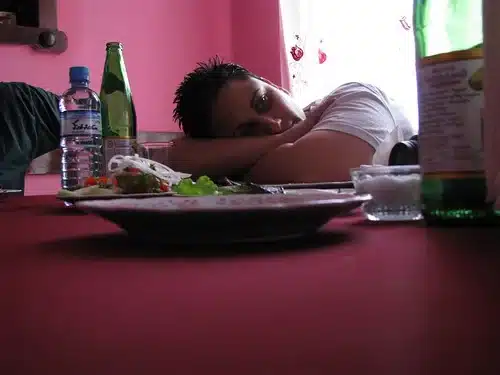For English review, please scroll down.
ספר על חברות. על זיכרונות שלא מרפים. על הניסיון להבין איפה הכל השתבש.
שלוש נשים ישראליות שחיות בארצות הברית יוצאות לטיול באיסלנד. טיול שאמור להיות מסע של חברות, קרחונים, ומעיינות חמים. אבל מהר מאוד הכול מסתבך. ברגע האחרון מצטרפת רותם, אישה שהקשר בינה לבין ליבי, אחת מהחברות, נקטע באכזריות לפני כשנה. הניתוק לא הוסבר מעולם, והמפגש המחודש מציף את ליבי בגל רגשות, שאלות, ופגיעות שלא דעכה.
הספר מנסה לפצח את הדינמיקה בין ארבע נשים. את העבר המשותף, ואת הפצעים הלא סגורים שכל אחת סוחבת. הדמות המרכזית היא ליבי, והנרטיב נשלט כמעט לחלוטין על ידה. ליבי היא אישה מרצה, חרדה, רגישה מאוד. ולעיתים פשוט מתישה. רוב הספר נסוב סביב התחושות שלה כלפי רותם, הפגיעה הבלתי מוסברת שחוותה ממנה, והאובססיה להבין למה זה קרה. היא מעלה שוב ושוב את אותם הרגשות, באותו הלופ פנימי, וזה יוצר תחושת מיאוס מסוימת בקריאה.
רק לקראת סוף הספר ניתנת לרותם זכות דיבור. היא מספקת הסבר להתנתקות הפתאומית. אבל ההסבר לא מצליח לשכנע והיה עדיף להישאר עם העמימות או פשוט לסגור את הסיפור ב"פשוט נמאס לי ממך". אולי דווקא משום כך נוצרת תחושת חמלה כלפי ליבי. כי למרות שפעלה לפעמים מתוך חולשה או בלבול, היה בה רצון כן להיות חברה טובה.
שני ורינת, שתי החברות הנוספות, נוכחות פיזית, אבל הסיפור שלהן כמעט שאינו מתפתח. נדמה כאילו הן נשארות ברקע, מוצגות רק כדי להבליט את הסערה בין ליבי לרותם. הסיפורים שלהן מתחילים אך לא מסתיימים. אין תחושת קתרזיס או מימוש, אלא משהו שנשאר תלוי באוויר.
הטיול עצמו, שבמהלכו מתרחשים אסונות בזה אחר זה: תאונות, תקלות, עימותים, גולש לעיתים למחוזות מופרכים. התחושה היא שהספר גולש לדרמטיזציה מיותרת, במקום לסמוך על העוצמה שבשברים השקטים.
הספר מאוד הזכיר לי תמאטית את הספר הראשון של קפלן שקראתי. אם בפיטנגו בחצר קפלן בחנה את הקשרים שבין הורים לילדים, ואת המרחק שנפער בתוך המשפחה, בעשיתי משהו רע היא פועלת בשדה אחר: שדה החברות. אבל גם הפעם היא שבה לאותם נושאים: פצעי עבר שלא קיבלו מענה, ניתוקים שמרחפים באוויר, וגיבורות שמנסות להחזיק את עצמן למרות הסדקים. שתי הגיבורות, עמליה וליבי, חיות הרחק מישראל, לכאורה בסביבה חדשה, אבל הלב שלהן עדיין שבוי באותם שברים ישנים. בשני המקרים, קפלן מצליחה ללכוד בעדינות את המתח שבין בחירה לרגש, בין התרחקות לצורך נואש בקרבה.
בשני הספרים מורגשת הבחירה של קפלן להתמקד בפצע פתוח שמתקיים לאורך זמן ולא נרפא. גם כאן וגם שם, הקונפליקט המרכזי נטוע ביחסים טעונים, אך בעוד שעמליה בפיטנגו בחצר מנותקת מהוריה, הרי שליבי בעשיתי משהו רע מנותקת מחברה, באופן שזוכה לפחות ביסוס רגשי ונרטיבי. התחושה בשני המקרים היא של הבטחה גדולה שמתחילה מצוין אך לא מממשת את עצמה.
ובכל זאת, מדובר בקריאה זורמת. עם רגעים כנים. ובעיקר מבט חד על חברות נשית, ועל המחיר הרגשי של ניתוק בלתי מוסבר. יש משהו אמיתי בעיסוק בחוסר היכולת לשחרר, בצורך להבין, ובכאב שלא נפתר. גם אם לא כל הקצוות נקשרים, עשיתי משהו רע משרטט דיוקן פגיע של מה שנשבר בין נשים, ולא תמיד ניתן לתקן.
עשיתי משהו רע/ הדס קפלן
הוצאת ספרים עצמית, 2025, 212 עמ'
דירוג SIVI –
איכות אודיו –

A novel about friendship. About memories that won’t let go. About the attempt to understand where it all went wrong.
Three Israeli women living in the United States set out on a trip to Iceland. A trip that was supposed to be about friendship, glaciers, and hot springs, but things quickly get complicated. At the last minute, Rotem joins the group, a woman whose friendship with Libby, one of the others, ended abruptly about a year ago. The break was never explained, and this unexpected reunion overwhelms Libby with a wave of emotions, questions, and unresolved pain.
The book attempts to unravel the dynamics between four women, exploring their shared past and the unhealed wounds each carries. The central character is Libby, and her perspective almost entirely shapes the narrative. Libby is accommodating, anxious, extremely sensitive, and at times, simply exhausting. Much of the novel revolves around her feelings towards Rotem, the mysterious rupture in their friendship, and her obsessive need to understand what went wrong. She rehashes the same emotions again and again, caught in a loop that can become wearying for the reader.
Only toward the end does Rotem get a chance to speak. She explains the sudden disconnection, but it's a weak, unconvincing one. It might have been better to leave the ambiguity intact or admit: “I got tired of you.” Perhaps this very lack of closure evokes some compassion for Libby. Despite her flaws and confusion, her desire to be a good friend feels sincere.
Shani and Rinat, the other two friends, are physically present but barely developed. Their stories are introduced but never really unfold. They remain in the background, mostly there to highlight the emotional storm between Libby and Rotem. There’s no real catharsis or sense of resolution for them – just a lingering sense of something unfinished.
The trip itself, marked by one misfortune after another, accidents, mishaps, and confrontations, sometimes slips into implausibility. The narrative leans too heavily on dramatization, rather than trusting the quiet fractures to carry the emotional weight.
The book thematically reminded me of Kaplan’s first novel, Pitango in the Yard. In that earlier work, Kaplan explored familial bonds and the distance that can open up between parents and children. Here, she turns her attention to friendship but once again returns to familiar terrain: unresolved wounds from the past, unexplained disconnections, and women trying to hold themselves together despite the cracks. Both protagonists, Amalia and Libby, live far from Israel, seemingly in new surroundings, but their hearts remain entangled in old hurts. In both cases, Kaplan delicately captures the tension between emotional distance and the longing for connection.
In both novels, Kaplan chooses to center her stories on an open wound that lingers and won’t heal. The emotional core is anchored in fraught relationships. But while Amalia’s estrangement in Pitango in the Yard has more emotional and narrative weight, Libby’s disconnection from a friend feels less justified – and the story overall struggles to deliver on its early promise.
Still, the book reads easily. It has sincere moments. And it offers a sharp look at female friendships and the emotional toll of a bond broken without explanation. Even if not all threads are tied up, I Did Something Bad draws a fragile portrait of what can shatter between women and why not everything can be fixed.
לגלות עוד מהאתר Sivi's Books
Subscribe to get the latest posts sent to your email.

